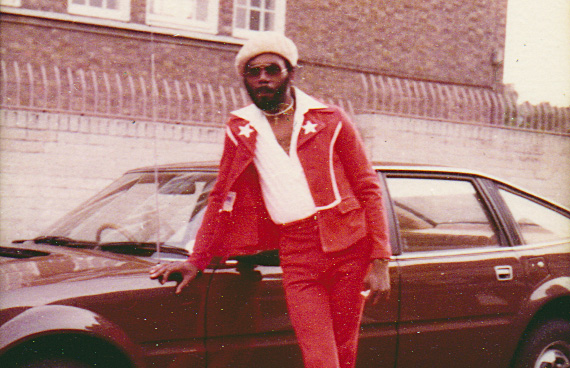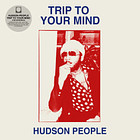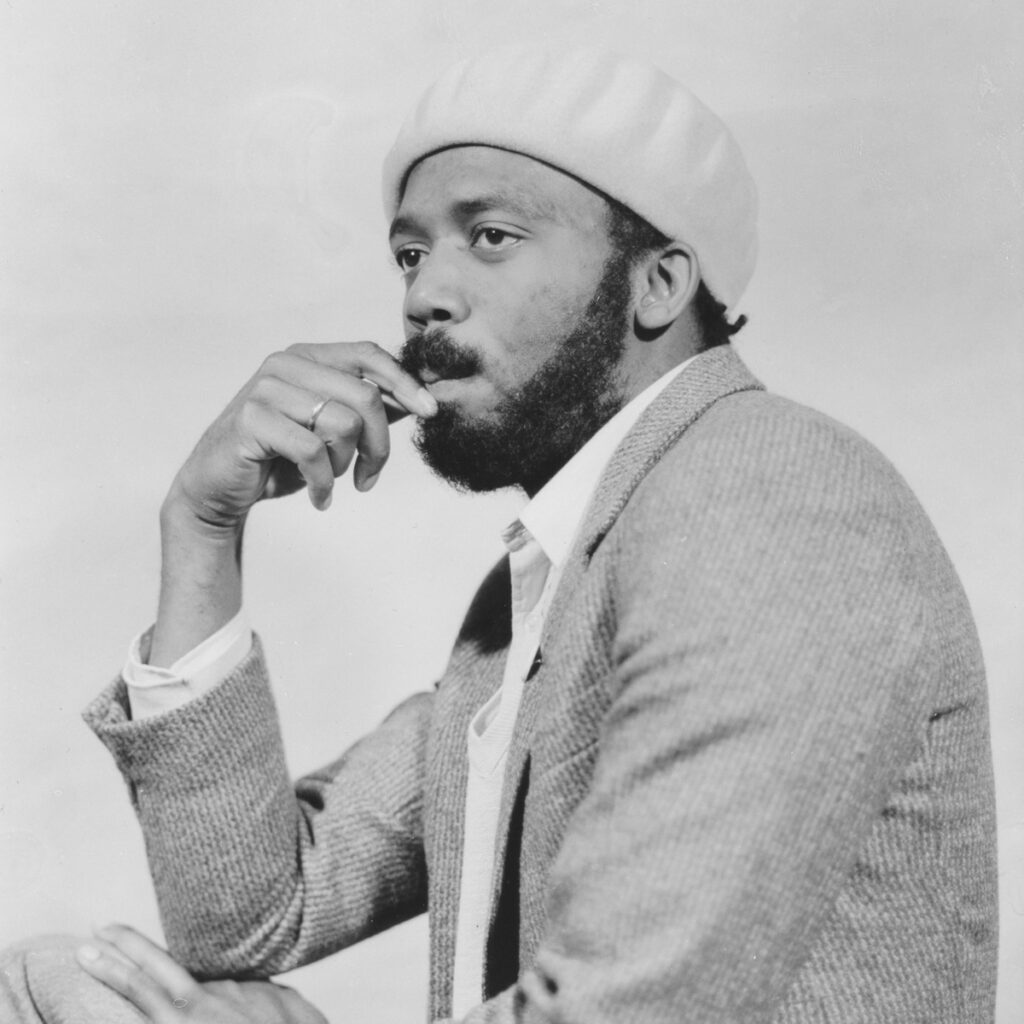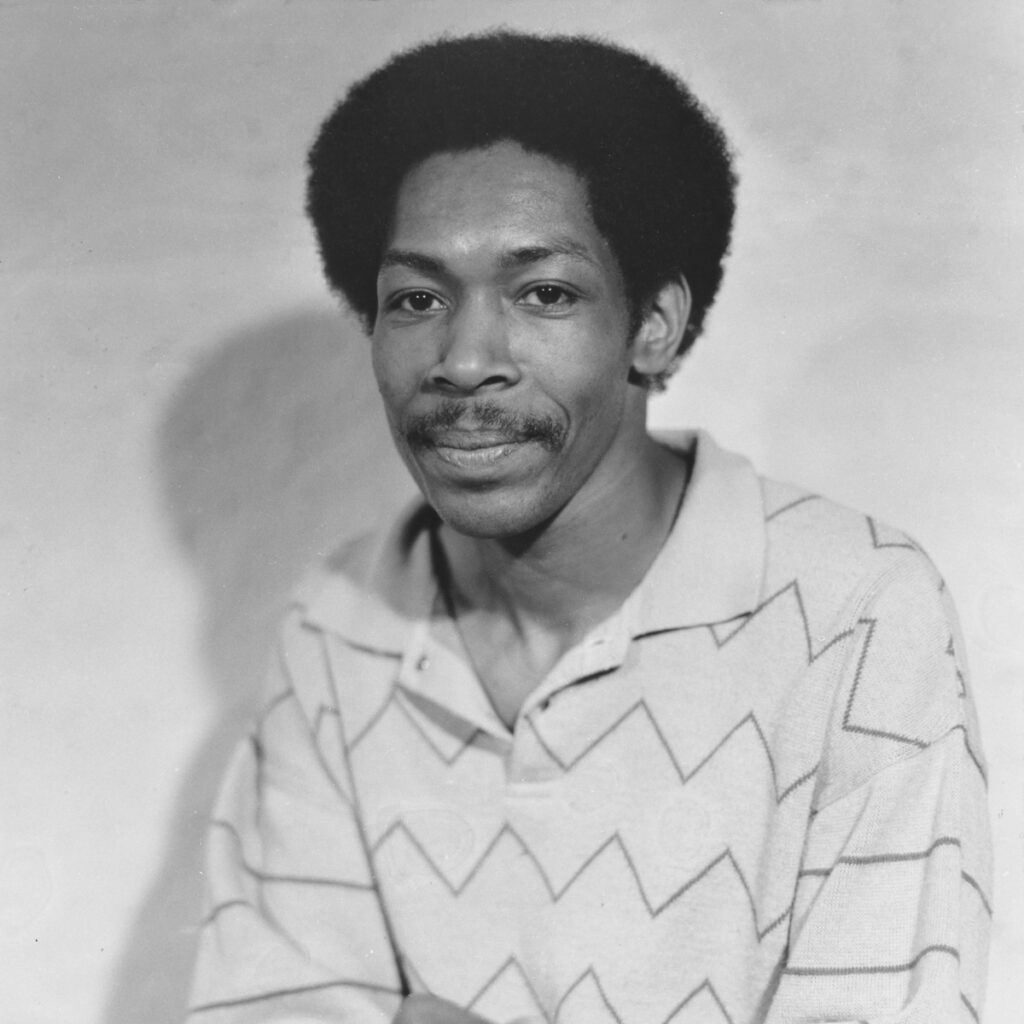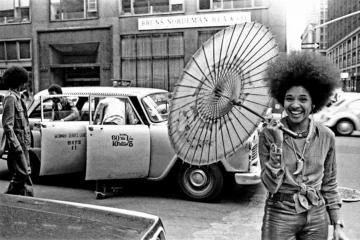Largely cut off from the outside world, there were many African-American musicians in the US barracks who formed bands or were otherwise musically active in Germany. Some of them were big names, such as Terence Trent D’Arby. And if you know the hip-hop classic »Ain’t No Half Steppin« by Big Daddy Kane, you should listen carefully, because the sampled track was originally by a band formed in Germany in the mid-seventies: Heatwave. But the heat in the name also had a completely different, previously almost unknown GI group behind it: Body Heat. Their story, however, was much less successful. This band would have been almost completely forgotten, as their only known recordings were released under the project name Hudson People, named after their songwriter Reginald Hudson.
Trip To Your Mind – the »Brit funk« classic made by GIs
One of the two tracks recorded by Body Heat is »Trip To Your Mind«, an essential disco/jazz-funk classic for those in the know. Connoisseurs of the genre have been playing it for decades, and it appeared on compilations in the late 1990s. Joey Negro later included the song on his »Backstreet Brit Funk (A Collection Of The UK’s Finest Underground Soul, Jazz-Funk And Disco)« Sampler. That fact that a GI group from Germany was behind it? Something nobody knew for a long time.
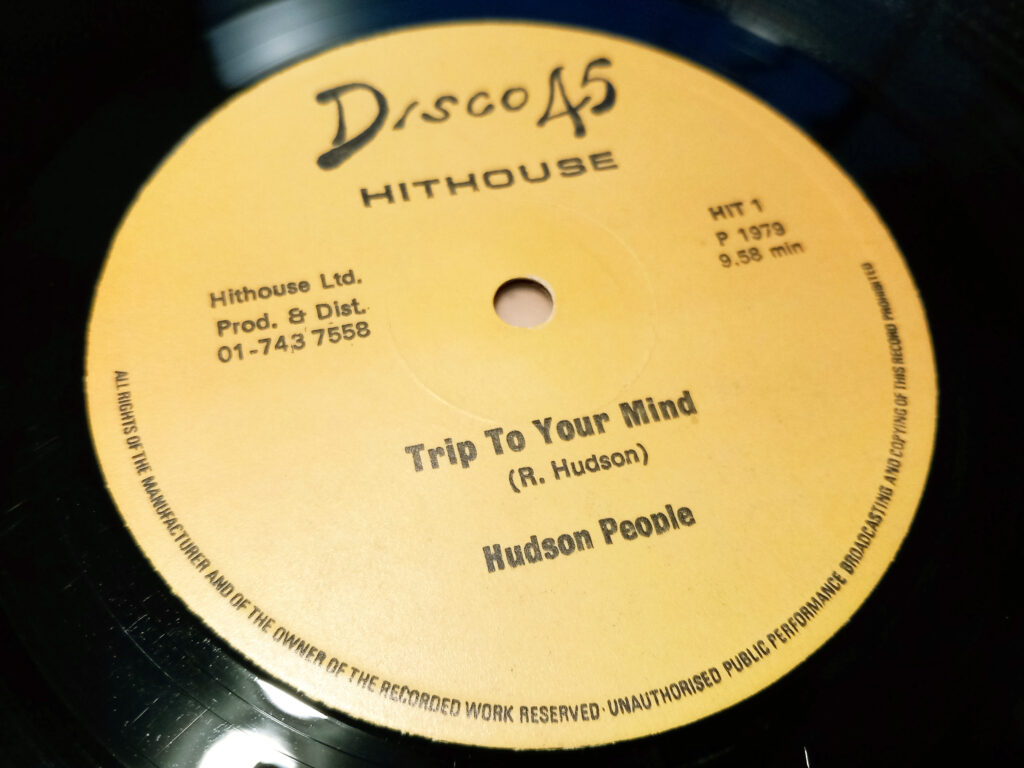
The ownership of the track remained unclear for a while. It was only a few years ago that Reginald Hudson himself helped to clear things up. The classification as UK funk or Brit funk was a mistake, because the musicians were all US-Americans from the Chicago area. Hudson explains: »The band consisted of Tony Palmer on guitar, Herva Middleton on drums and vocals, Charles Walker on sax. Charles was a friend of mine in the States, he didn’t live far away«. Palmer, Middleton and Walker formed Body Heat during their time in the army in Germany.
Reginald Hudson himself was still in the USA at the time. He played keyboards for the soul group The Emotions and toured the country with the band, playing with big names such as Earth, Wind & Fire and Ramsey Lewis. Meanwhile, two British managers discovered Body Heat while they were opening for Eric Burdon & War in the Netherlands. They suggested the band go to London to get gigs and recording opportunities. Hudson was to join as keyboardist and songwriter. When the band called him and sent him a plane ticket to the States, it was clear they meant business. »That was at the end of 1976, the moment I came to Europe for the first time« says Hudson. In London, Body Heat and Hudson were ready to take off.
From London to Nuremberg and back
In the London suburb of Thornton Heath, the management had provided a house where they could practise, and a little later the recording session took place at London’s top studio, Advision. Hudson: »Having written ‘Trip To Your Mind’ on my piano, I showed it to the band and we recorded it straight away«.
But things didn’t go as hoped – after months of waiting, the band were denied work permits in England. After about eight months in London, they were forced to return to Nuremberg. The two songs they recorded, »Trip To Your Mind« and »Power To The Hour«, remained unreleased due to the failed collaboration.
Although Body Heat were arguably the best funk and soul band in Germany at the time, they mostly performed well-known R&B hits on US Army bases.
Reginald Hudson followed the band to Germany. They were determined to make money from their music. But the band still needed reinforcements – and they found them in John Davis.
Davis was in the US military at Baumholder, a small town near Kaiserslautern. Hudson recalls: »We went to Kaiserslautern about a year later to bring Johnny into the band. The band were staying in a house near Nuremberg. Johnny and I became best friends and started writing songs together.« This friendship and collaboration later led to the classic »Shake It – Make It Loose«. But it wasn’t all plain sailing until then.
A promotional picture card from the late 1970s shows the full line-up of the band, including Karl Keaton as the new lead singer and Vincent McDay on drums:
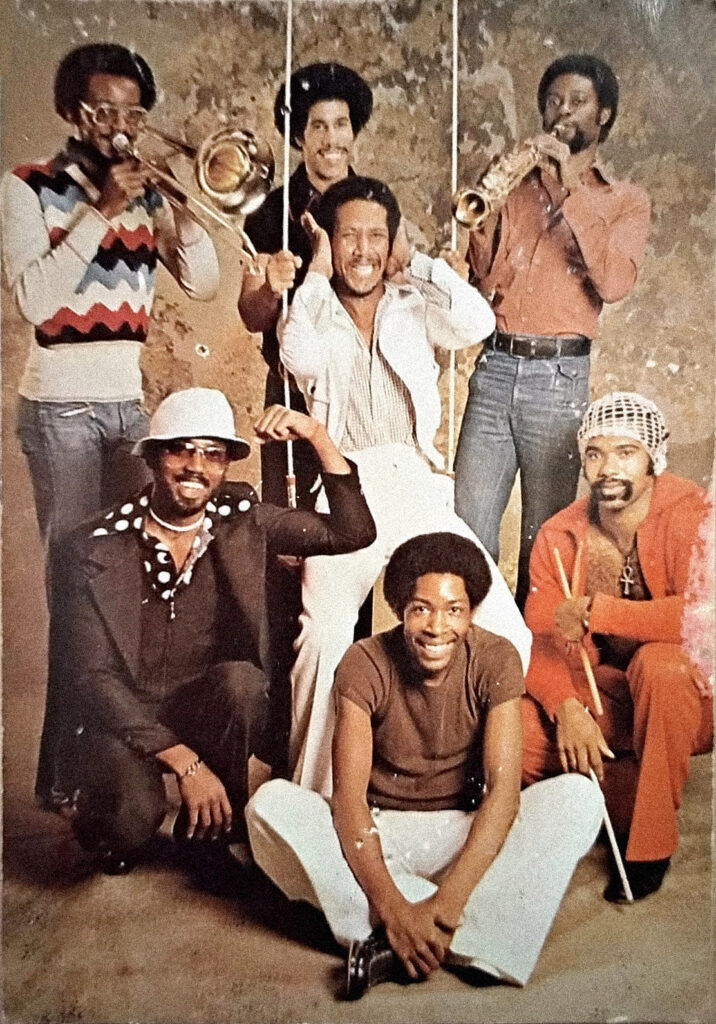
Although Body Heat were arguably the best funk and soul band in Germany at the time, they mostly performed well-known R&B hits on US Army bases. Despite their stage success, Body Heat only lasted about two years. Hudson: »Women, alcohol and other substances tore the band apart«.
»Trip To Your Mind« was finally released in 1979 on the newly formed mini-label Hithouse, owned by a record shop owner. Somehow the 12″ ended up with BBC radio presenter Robbie Vincent, who remixed and re-recorded the track for the larger Ensign label. The airplay it received made the new recording a hit in the London jazz funk scene. However, the delayed success of the single came too late for Body Heat – they were denied permission to perform in England anyway. It was probably released under the name Hudson People for this reason. Following the success of »Trip To Your Mind«, Reginald Hudson was able to place two more singles with the major labels Virgin and United Artists – this time with musicians from England.
New directions for Hudson and Davis – drum machines and electro funk
The band broke up, but Reginald and John remained friends. In the early 1980s, Reginald began to concentrate more on writing and producing, but also took on other jobs outside of music. At the same time, John became the lead singer and guitarist in the rock/funk group Joker. The Joker project was very popular in the southern parts of Germany. The band released two albums, the first on WEA and the second on the smaller Roxon label.
Around 1983, Johnny entered a new phase, which can be described as his electro-funk period, marked by numerous releases under various pseudonyms and projects. These included collaborations with Bobby Bachinger and the band Too Much, as well as recordings at the P.A.S. studio with Manfred Radtke – all on the Deggendorf-based Metrovynil label. Few people know that Davis also had rap skills: he recorded some Blowfly imitations under the pseudonym Superfly. These and other recordings were commissioned at the request of the Metrovynil label owner, who was looking for a sound he described as »the hardest ever«, as heard on the infamous »Funk-You!« series.
Funk You! – The Metrovynil scam
This compilation series, as well as the electro-funk classic »Destination Earth« featuring Too Much, was a staple of record shops in the American Zone and beyond. It is estimated that some editions of the »Funk You!« sampler and the »Destination Earth« album sold between 20,000 and 40,000 copies – an impressive feat for an independent release.
In the autumn of 1984, Davis and Hudson’s joint LP, »Shake It – Make It Loose«, was released. According to Hudson, only about 4,000 copies of the album were made. Today it is a rarity. The reason probably lay in the other terms of the contract. Hudson recalls his meeting with the label: »When we went to Metrovynil, Johnny was willing to accept a deal for little money. Johnny would have signed, but I told him, ›No, let’s get out of here.‹ And just as we were leaving, the Metrovynil manager called us back and made us a reasonable offer with an advance.«
The handling of releases on Metrovynil was often confusing – not unintentionally, of course. Many records pretended to be US imports and lacked credits. The company behind the label was EAMS, which stood for Euro-American Music Service. EAMS was primarily a distributor, not a traditional label. Artists and rights holders quickly realised that the company was cheating them. By 1985, Metrovynil was being sued by numerous artists for unpaid royalties and GEMA fees. Unaware that some releases had sold in large numbers, the artists were fobbed off with small advances. Metrovynil hid the high sales figures for its own releases because it controlled both the distribution and the label.
When the artists won the case, the label owner fled to the US, leaving John Davis and others not only out of pocket, but also with court and legal fees. Again, the question is: what would have happened if? If Metrovynil had invested the money sustainably in its artists and paid the GEMA fees instead of pocketing the profits, John Davis in particular, who played a key role on three other Metrovynil albums (John Davis & Too Much »Destination Earth, »Funk You Vol. 3«, Spank »Spank You«), would probably have been able to build up a steady career early on.
»The market for the genre in Germany was small – we just wanted to make music.«
Reginal Hudson
But back to »Shake It – Make It Loose« – the joint masterpiece of Hudson and Davis. You’d think a full band was involved in the recording. In reality it was the work of just two exceptionally talented musicians. Hudson explains the creative process: »It was just Johnny and me, we played all the instruments ourselves. Johnny played bass, guitar and vocals and we programmed the drum machine together. The rest was mostly keyboards.« He recalls that they completed the album in just six or seven days at Hartmann Digital Studio.
The Puma connection and the legendary Hartmann Digital Studio
»Shake It – Make It Loose« holds other mysteries. Why was the album released under the unusual name J.D. (Puma) Lewis? The J.D. Lewis part is easy to explain: It is simply an abbreviation of John Davis Lewis. And the Puma? Hudson explains: »I was working as a promotions manager for Puma sportswear at the time. Jörg Dassler, son of Puma founder Rudolf Dassler, was a friend of mine and financed our studio sessions.
The Hartmann Digital Studio in question was a state-of-the-art studio in Untertrubach, Bavaria, where artists such as Nena, Yello, Visage, DAF and Soft Cell recorded. Using the studio would have been too expensive for the two musicians without Puma’s support. Despite other titles referring to Puma shoes, such as »Dancing Shoes«, the music was never used by Puma for commercial purposes. Nor was the album promoted by Metrovynil – for the German music media of the 1980s, »Shake It – Make It Loose« was doomed for failure as a »black music« exotic. Hudson says: »The market for the genre in Germany was small – we just wanted to make music.«
From GI funker to Milli Vanilli ghost singer
The Outer Edge label has now reissued the album for the first time. »Trip To Your Mind« is also being successfully reissued – the UK Backatcha release was issued in 2022, while The Outer Edge reissues are due out soon.
The new release of »Shake It – Make It Loose« also includes the previously unreleased tracks: »Life’s A Party« and »Walk Out On Me«. »Life’s A Party« was recorded at the P.A.S. studio, where the iconic track »»Expand Your Mind« was later written. »Expand Your Mind« was originally written by Hudson with none other than Marvin Gaye, but was eventually recorded by John Davis. It was released in 1985 on the British label AM-FM and marked the end of the collaboration between Hudson and Davis. It has just been reissued on Backatcha.
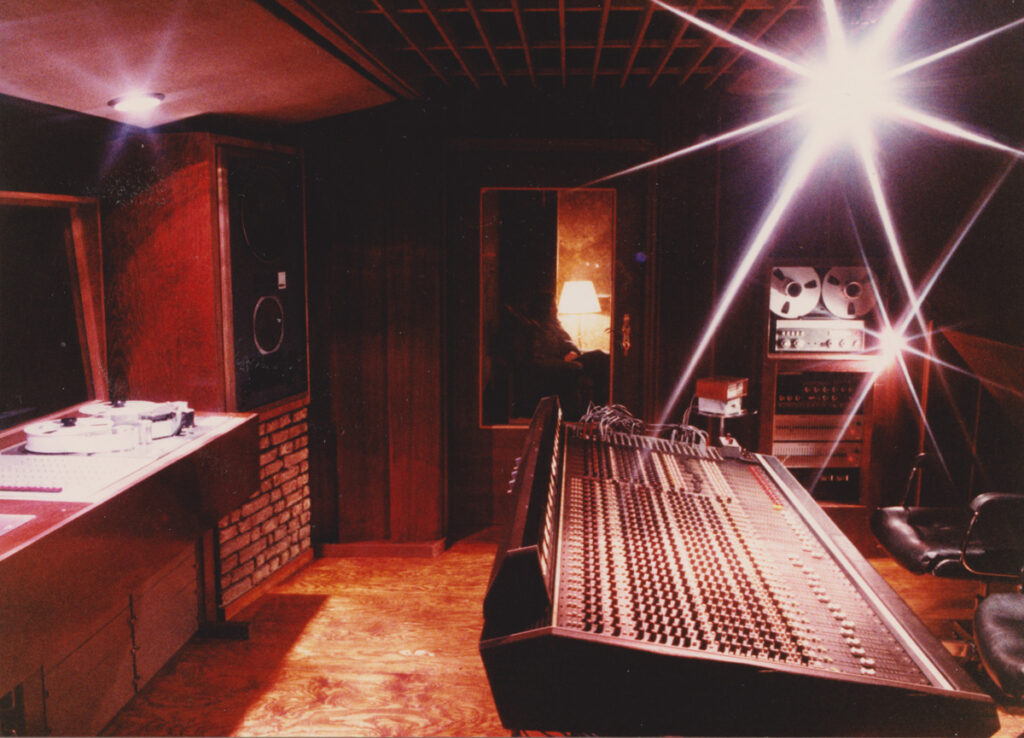
Davis went on to work with Curt Cress and later with Frank Farian, where he made tragic music history as one of Milli Vanilli’s studio singers. His voice was largely responsible for the success of songs like »Girl I’m Gonna Miss You«, »Blame It On The Rain« and many more. But that is a completely different story. Unfortunately, John Davis passed away on 24 May 2021 from complications linked to COVID-19. Reginald Hudson now works in Spain and continues to make music.

